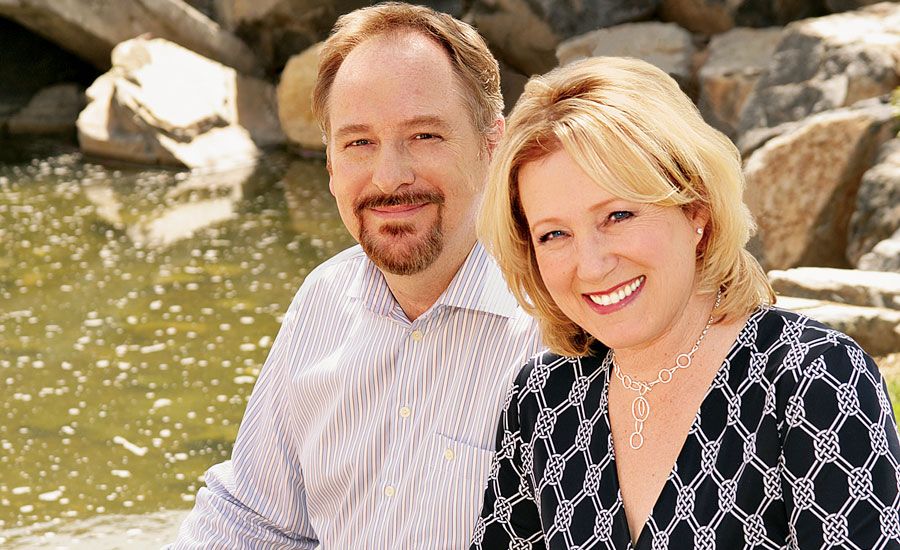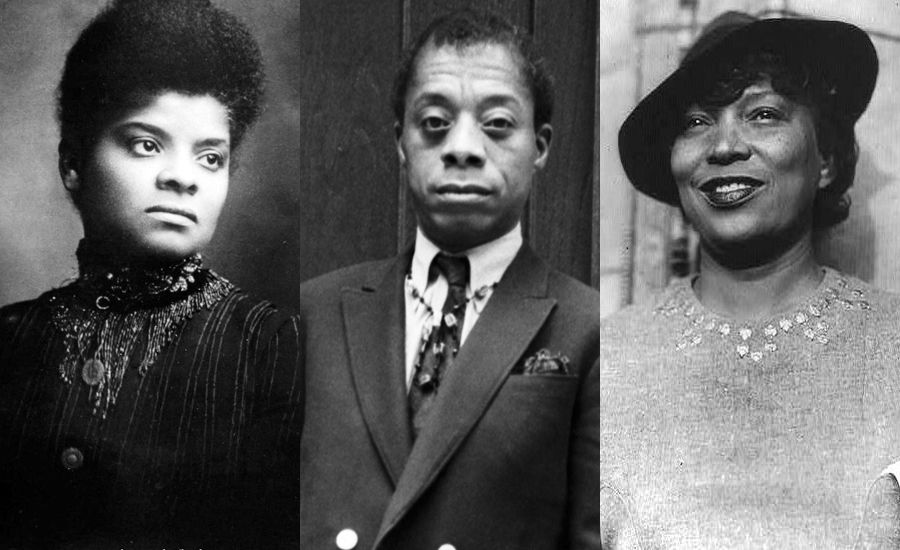The examining room was cold. I lay on a gurney, alone. The radiologist had stepped out so quietly, I didn’t realize he was gone.”Hmm,” I overheard him say to his assistant, “looks like breast cancer.” Then they had walked out.
My hands were at my sides, where they had been when the doctor peered at the ultrasound screen. Now they fidgeted, searching for someone, something to hold. But there was only the tile floor, the dimmed lights, the gurney and the glowing screen beside me.
Minutes ticked past—silent, lonely minutes. And then the doctor’s words sank in, frighteningly real. I froze. I wanted to scream. I wanted to thrash my limbs and run from the room. All that kept me quiet was a fragment from Job that floated into my mind: “He knows the way I take.”
I swung my legs off the bed and stood, rubbing my arms. I cracked the door and peered into the hall. Nurses and orderlies walked briskly past. My assistant from church was waiting. She looked up. “Oh, Kay, what?” she asked, seeing my face.
“I—we—we have to cancel my trip. I have to go home. It’s—the doctor thinks I have cancer.” Then I leaned against the wall and sobbed.
In the car, I called my parents. I had been planning to fly to Arizona to visit them that day. A routine mammogram a few days before had turned up what the doctor called a “calcification.”
“It’s probably nothing,” he had said. “But let’s check it out anyway, just to be safe.” His words were so confident, I had scheduled the radiologist appointment for just a few hours before my flight.
On the phone, I told my parents I had to delay my trip. “I’ll call you back tonight,” I said. I couldn’t bear to say the word cancer until it was confirmed and reconfirmed. Surely not now, God.
I thought of the plans my husband, Rick, and I had been laying for months. In six weeks I was scheduled to join him at the pulpit of Saddleback Church, which he has led for 26 years. We were announcing a new focus for the church—serving the dispossessed, including people with AIDS at home and abroad. I had been excited thinking about it: Now I, too, have a mission.
You see, that year, 2003, was supposed to be a great year for me. I was 49 years old. My three wonderful children were grown. Two of them were married. I was entering that stage of life when kids become adult companions and a mom asks, “What now?”
Rick had enjoyed great success with his books and ministry, and he had big plans to use Saddleback’s resources to train pastors around the world. And I had found a calling: AIDS. A few months before, I had come across a number in a magazine article, a simple, shocking number—12 million children orphaned by AIDS in Africa.
I had put the magazine aside, but the number wouldn’t go away. Rick encouraged me to use my new free time to do something about it. So I set up an office and, before I knew it, I—a pastor’s wife, a soccer mom—had full-time work and an assistant. I even persuaded Rick to make AIDS one of the church’s priorities.
Then, just days later, that visit to the radiologist. Driving home, I watched Orange County’s comfortable suburbs roll by. In the foothills, where Rick and I live, streets curve and branch around slopes. I saw my life sailing down one of those streets, and then, suddenly, as if an earthquake jolted the pavement, I was careening down another road, out of control.
Rick was waiting at the door. I’d called him from the car. He folded me in his arms. I could feel him crying and trying not to seem like it. I pulled away and reassured him.
Perhaps it was a mothering instinct, but I suddenly felt very calm and competent. “Sweetheart, it’s going to be fine. God has us in hand. Remember the verse from Job: ‘He knows the way I take, and when he has tried me I will come forth as gold.’ Really, don’t cry.”
Rick looked at me, surprised. But I was already thinking about what to tell my parents that night.
A few days later, an oncologist confirmed my cancer—stage one breast cancer. I needed surgery and chemotherapy. I asked what to expect.
“You’ll lose most of your breast, and there will be permanent scars.”
This time, I had no reassuring words. Instead, when we got home, I walked into our bedroom and stood in the closet. I looked at my clothes, hanging silently in a row. I wondered how they would fit. Then I saw that splitting road again. Despite all my confidence, it was not going toward AIDS work. My new office was empty. My assistant’s main job now was helping schedule medical appointments.
I tried reasoning with God. I don’t want this road, please. I want the life I had five days ago. It was all very clear, Lord: Help people with AIDS. Well, I was getting ready to do that. So why this? Why now?
But the clothes, the closet were silent.
Life became trips to the doctor. Surgery. Recovery. Chemotherapy. Nausea. Exhaustion. My kids stayed at the house. Rick cut back his schedule so he could go with me to every appointment. I was, I realized, surrounded by love. Just having someone near when you’re sick—what a blessing, I thought.
My hair began falling out and after waking up with clumps on my pillow, I decided to shave it off. My hairdresser kindly offered to come to the house. It was raining that day, and Rick, thinking my favorite food would help my appetite, was outside barbecuing chicken.
One of my sons, Josh, held my hand while the hairdresser set up a chair and spread a tarp in the living room. The clippers clicked on, and I felt them raking over my head. Chunks of blonde hair fell on the floor. Josh’s hand tightened. “You are so beautiful, Mom,” he said.
Finally, the hairdresser tied on a scarf. I was curious, though, so I went to a bathroom mirror and took the scarf off. A ghost stared back at me—gaunt, tired, wrapped in white skin. It was ugly, horrifying. I raced back to the living room just as Rick was coming in from the patio.
“Look at me!” I sobbed. He sat me beside him on the sofa. I curled into his lap, and he held me and stroked my head. “My beautiful Kay, my beautiful Kay,” he said over and over. And somehow, held in those arms, soothed by those words, I felt my fear and loathing ebb away.
I was very lucky. The doctors said my treatment was successful, and a few months after my last round of chemo I was attending an international AIDS conference in Thailand. On the same trip, I arranged to tour regions ravaged by the disease.
Accompanied by one of my best friends, Elizabeth, and an interpreter, I ended up in a village in Cambodia. There, we were taken to a small wood-and-cane shack. Inside, a woman lay on a low bed. She was weak—startlingly like the pale figure in my bathroom mirror.
Through the interpreter, she told me her story. Her husband was already dead of AIDS. All she had left were a few friends and relatives. It was they, she said, gesturing at the women surrounding her on the bare dirt floor, who kept her alive.
As she spoke, my arm curled around Elizabeth’s shoulders. I remembered Rick holding me in my despair. And in that moment I realized why the road had split and curved—why the cancer came when it did, and how I would use its lessons to fight against AIDS.
A week later, I was sitting in my office with a man named Bill, the director of an Orange County AIDS outreach organization. I was feeling frustrated. Hundreds had answered the call when Rick and I talked to Saddleback about local AIDS work. But pairing volunteers with sick people was proving difficult.
For one thing, many organizations that care for AIDS patients were suspicious of us and our motives. I had spent the better part of my meeting with Bill trying to convince him that Saddleback volunteers weren’t intending to pry into his clients’ personal lives or show up at their bedsides with a sermon.
He wasn’t buying it. “I’m sure you’re sincere, Mrs. Warren,” he said. “But I’m still not certain your church is a good fit with our organization.”
He gave me a look that seemed to suggest the meeting was over. I groped for something to keep the conversation going. To my surprise, a series of images ran through my mind. I saw myself on an examining-room gurney, terrified and alone.
Then I saw my shaved head, ghostly white in the mirror. I remembered calling Rick from the car after leaving the radiologist’s office—the flood of relief at the sound of his voice. Finally, I saw the row of clothes in my closet, the branching road. I knew exactly what to say.
“Okay,” I said, “I understand your concerns. But before you go, I want to explain the reason I invited you here. I don’t know what it’s like to have AIDS. But I do know what it’s like to have a life-threatening illness.
Last year, I had breast cancer. I underwent surgery and chemotherapy. It was awful. But during those months, what mattered most was having people around me. Just holding me. Just knowing they were there, I wasn’t afraid to die.”
Bill looked at me, startled. He reached out and laid a hand on mine. “I’m not afraid to die, either,” he said. “But there is something I am afraid of: dying alone.”
“Bill, I’ll make you a promise,” I said. “All we at Saddleback want is to bring the love of God to sick people—to make sure that no one has to die alone.”
The room grew still. “Maybe we can work with you,” Bill said at last.
That was a year ago. Today, five Saddleback small groups are working directly with AIDS patients, driving them to doctors appointments, inviting them for dinner—doing life together, as we call it. Dozens of church members have gone with me to Africa. But it’s the local work—attending an AIDS support group at church, participating in Orange County’s AIDS Walk—that sometimes seems the biggest step.
Five AIDS patients aren’t many in a county where more than 3,300 have died from the disease. But it’s a start. I don’t believe God wanted me to get cancer. But once I had it, I believe he used it to change me—to teach me, in a way I had never known, what Jesus meant when he told his disciples: “Love one another.” The meaning is really quite simple. Open your heart. Be present. Give care. That’s the kind of love I received. And it’s the kind of love I long to give.
Did you enjoy this story? Subscribe to Guideposts magazine.





